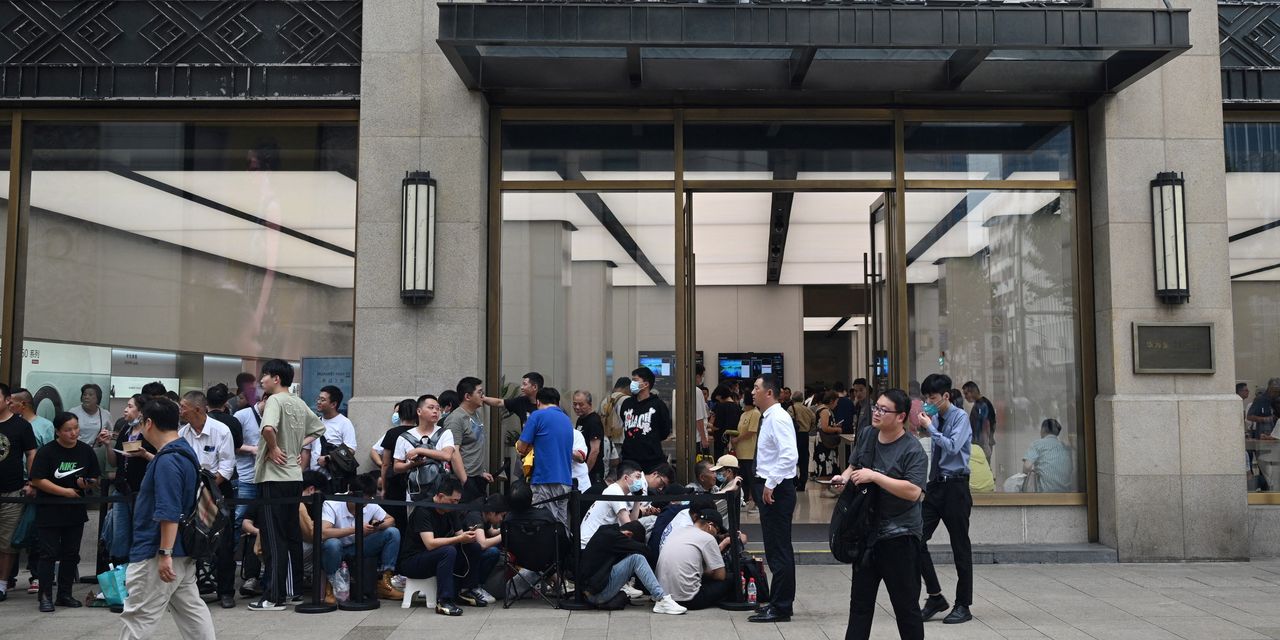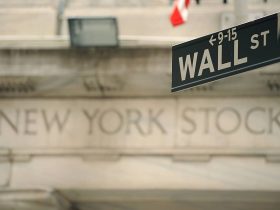TOKYO — Asian trading was muted Tuesday over worries about a possible U.S. government shutdown and the troubled Chinese economy.
Japan’s benchmark Nikkei 225 index
JP:NIK
slipped 0.8% in morning trading. Australia’s S&P/ASX 200
AU:XJO
dipped 0.5% and South Korea’s Kospi
KR:180721
dropped 1.2%. Hong Kong’s Hang Seng
HK:HSI
slid 0.6% and the Shanghai Composite
CN:SHCOMP
was flat. Stocks were also flat in Indonesia
ID:JAKIDX,
while benchmark indexes in Singapore
SG:STI
and Taiwan
TW:Y9999
slipped.
Investors are watching for Chinese economic indicators being released later in the week.
“The Chinese property woes are far from over, as the notorious developer Evergrande defaulted on its 4 billion yuan onshore bond repayment and delayed the restructuring meetings,” said Tina Teng, market analyst at CMC Markets APAC & Canada.
Wall Street clawed back some of its steep losses from last week. The S&P 500
SPX
rose 17.38, or 0.4%, to 4,337.44, coming off its worst week in six months. The Dow Jones Industrial Average
DJIA
edged up 43.04, or 0.1%, to 34,006.88, and the Nasdaq composite
COMP
gained 59.51, or 0.5%, to 13,271.32.
Realization is sinking in that the Federal Reserve will likely keep interest rates high well into next year. The Fed is trying to ensure high inflation gets back down to its target, and it said last week it will likely cut interest rates in 2024 by less than earlier expected. Its main interest rate is at its highest level since 2001.
The growing understanding that rates will stay higher for longer has pushed yields in the bond market up to their highest levels in more than a decade. That in turn makes investors less willing to pay high prices for all kinds of investments, particularly those seen as the most expensive or making their owners wait the longest for big growth.
The yield on the 10-year Treasury rose to 4.53% from 4.44% late Friday and is near its highest level since 2007. That’s up sharply from about 3.50% in May and from 0.50% about three years ago.
“Stocks digest gradual, growth driven increases in interest rates far better than rapid increases driven by other factors such as inflation or Fed policy,” Goldman Sachs strategists led by David Kostin wrote in a report.
Higher yields are at the head of a long line of concerns weighing on Wall Street. Not only have oil prices jumped by $20 per barrel since June, economies around the world are looking shaky. The resumption of U.S. student-loan repayments may also weaken what’s been the U.S. economy’s greatest strength, spending by households.
In the near term, the U.S. government may be set for another shutdown amid more political squabbles on Capitol Hill. But Wall Street has managed its way through previous shutdowns, and “history shows that past ones haven’t had much of an impact on the market,” according to Chris Larkin, managing director of trading and investing at E-Trade from Morgan Stanley.
In energy trading, benchmark U.S. crude
CLX23,
slipped 7 cents to $89.61 a barrel. Brent crude
BRNX23,
the international standard, fell 14 cents to $93.15 a barrel. Oil prices have leaped sharply since the early summer.
In currency trading, the U.S. dollar
USDJPY,
rose to 148.93 Japanese yen from 148.84 yen.
Read the full article here









Leave a Reply